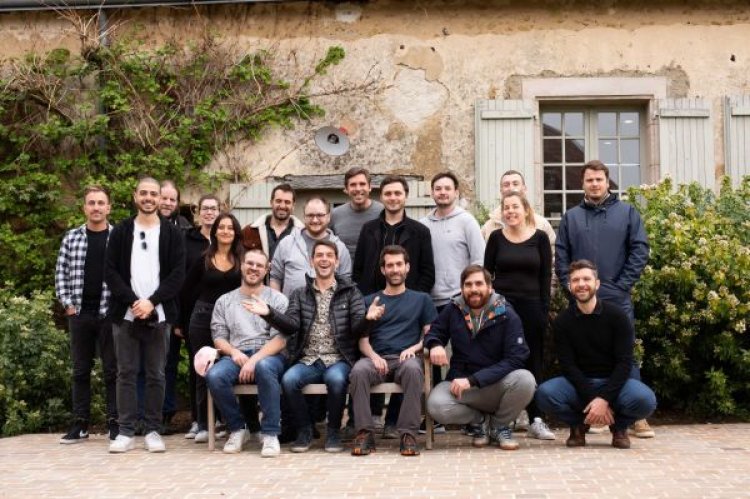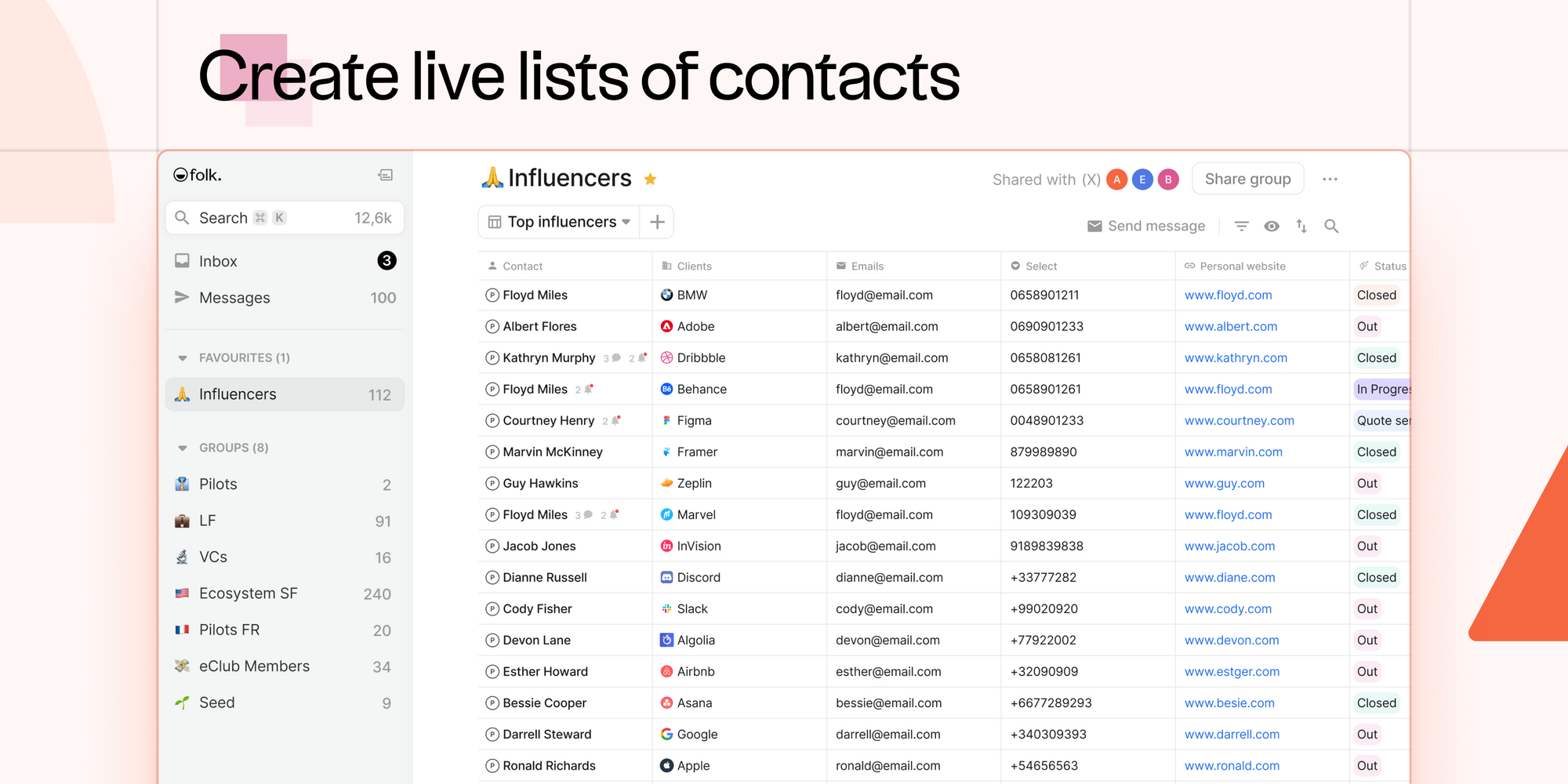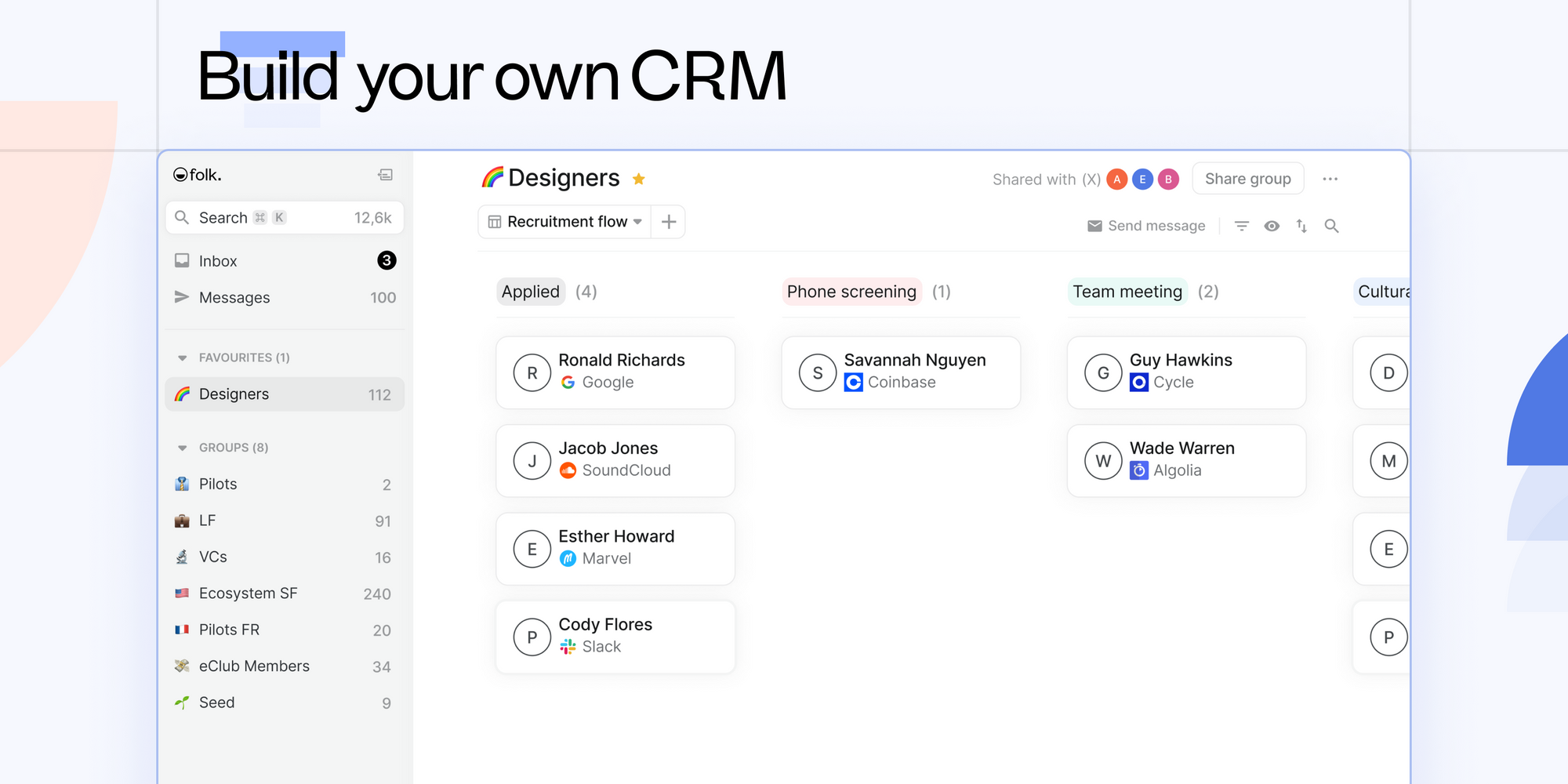Folk is launching its flexible CRM product
Folk, the next-generation CRM started by European startup studio eFounders, is going live today. If you’ve paid attention to TechCrunch, I’ve already covered Folk in the past. Since then, the product has evolved a bit and is now ready for prime time. “The biggest SaaS [software-as-a-service] category is CRM. The highest valuation in the SaaS […]

Folk, the next-generation CRM started by European startup studio eFounders, is going live today. If you’ve paid attention to TechCrunch, I’ve already covered Folk in the past. Since then, the product has evolved a bit and is now ready for prime time.
“The biggest SaaS [software-as-a-service] category is CRM. The highest valuation in the SaaS industry is Salesforce,” co-founder and COO Simo Lemhandez told me. “But i’s also a category with products that are all considered as outdated,” he added.
For instance, Lemhandez thinks it’s too hard to customize a major CRM product to your needs. “We’ve all heard about Salesforce’s integration teams even though we are all used to the self-serve model,” he said.
Like many modern SaaS products, Folk draws inspiration from popular products that are highly flexible yet very powerful. Examples include Notion, Airtable, Figma and Shopify.
For the past 18 months, Folk has been iterating on its beta product. There are 10,000 people on the company’s waitlist who want to give it a try. I saw a demo of the product and sure enough, you can get started without any integration team. When you first sign up, you are asked to create a workspace and invite your coworkers.

Image Credits: Folk
Thanks to an integration with Google Workspace, users can import contacts, emails and calendars into the product. Folk instantly starts working on your contact database by merging duplicates, indexing all fields and enriching contact data.
With a simple keyboard shortcut, Folk users can search in their contact database. You can search for a name, a company, etc. Once you have this foundation, you can start leveraging your network.
Folk lets you create groups to organize your contacts. Each group can represent a project or a specific group of people. For instance, you can create a group for PR, another one for your existing investors, another one for potential clients, etc.
When it comes to adding contacts to groups, you can search through your contacts, import new contacts from a file, or leverage various integrations with third-party services. You can imagine integrations with Calendly, Webflow, Zapier, etc. You can also expect extensions for Zoom and a browser extension that integrates with LinkedIn and Gmail. Folk is still building some of those integrations.
Each group is highly customizable. Users can add columns, filter and order contacts, add some logic to some fields. For instance, you can order your contacts based on your most recent interactions. At any time, you can also switch to a pipeline view so that you can more easily see the status or your projects.
Folk lets you send batch messages with variables, such as first name and last name. Team members can also add comments to a contact so that everyone can remain on the same page. There’s also a reminder feature.
While Folk competes with traditional CRM products like Salesforce and HubSpot, the startup also consider database and spreadsheet tools like Notion, Airtable, Coda and Excel as competitors. There is also a new generation of CRM products on the market, such as Attio — a startup that I covered last year.
But it’s a gigantic industry with some companies that just don’t use any CRM at all. There will be room for more than one startup in the space. Folk has raised $4.5 million from Accel and 50 different angels.

Image Credits: Folk







